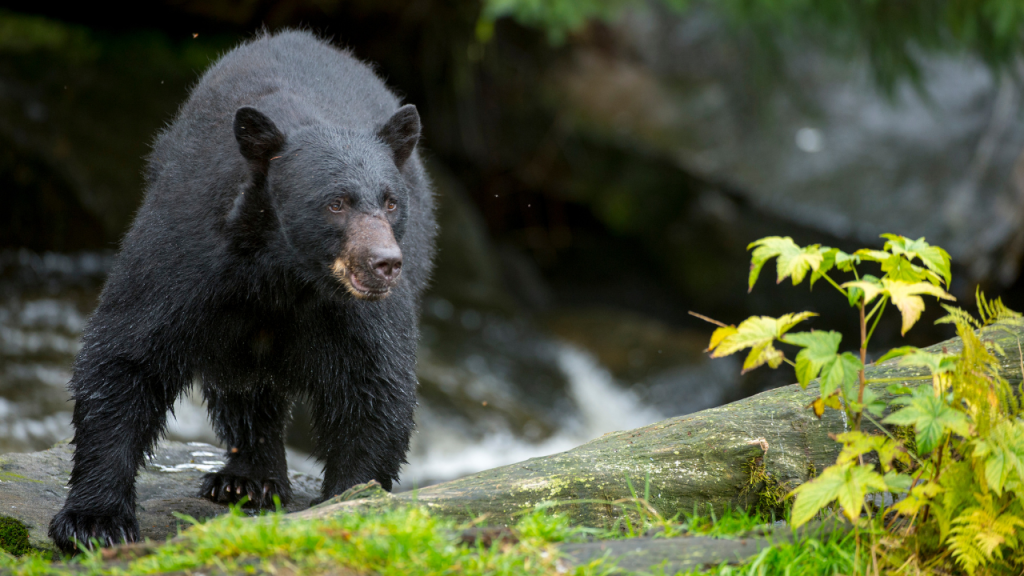The CDC has issued a warning about the importance of properly cooking wild game after six people fell ill from a parasite traced to undercooked bear meat. The individuals contracted trichinellosis from contaminated bear meat that was served rare. Trichinellosis is considered rare in the U.S. and is primarily linked to wild game consumption. The CDC emphasized the need for adequate cooking to kill Trichinella parasites in wild game meat to prevent contamination and cross-contamination with other food.
The six individuals affected by the parasite were from South Dakota, Minnesota, and Arizona, with two of them consuming only the vegetables grilled with the contaminated bear meat. Despite the meat being frozen for 45 days, the trichinella worms were from a freeze-resistant species. The first case emerged after a 29-year-old man from Minnesota became hospitalized twice with various symptoms after consuming the bear meat from Saskatchewan. Three of the victims were hospitalized, but all six individuals, ranging in age from 12 to 62, eventually recovered from the illness. Trichinellosis, once commonly associated with undercooked pork, is now primarily linked to the consumption of wild game in the U.S.
From 2016 to 2022, the CDC has reported seven outbreaks of trichinellosis, including 35 probable and confirmed cases, most of which were linked to the consumption of bear meat. The parasite larvae can settle in various tissues such as the intestines, muscles, heart, and brain, but most patients recover fully within two to six months. The CDC recommends cooking wild game meat to at least 165 degrees Fahrenheit, with the use of a meat thermometer for verification, as meat color is not a reliable indicator of doneness. The report highlighted that the family members had initially consumed the undercooked meat before realizing their mistake and recooking it, emphasizing the importance of keeping raw and undercooked meat and their juices separate from other foods to prevent contamination.
The importance of cooking wild game properly was underscored by the CDC in response to the recent outbreak of trichinellosis linked to undercooked bear meat. The incident at a family reunion in South Dakota led to six individuals falling ill from consuming contaminated bear meat served rare. Trichinellosis, a rare parasitic infection in the U.S., is typically associated with the consumption of wild game and can cause various symptoms such as fever, muscle aches, and pain. Despite the meat being frozen prior to consumption, the freeze-resistant trichinella worms were able to infect the individuals.
The cases of trichinellosis from undercooked bear meat highlight the need for proper cooking practices when consuming wild game to prevent parasitic infections. The CDC’s recommendations include cooking wild game meat to a minimum temperature of 165 degrees Fahrenheit, using a meat thermometer to verify doneness, and keeping raw and undercooked meat separate from other foods to avoid cross-contamination. While trichinellosis cases in the U.S. are now rare and mostly linked to wild game consumption, outbreaks such as the recent one serve as a reminder of the potential risks associated with undercooked meats and the importance of safe food handling practices.
In conclusion, the recent outbreak of trichinellosis linked to undercooked bear meat at a family reunion underscores the importance of proper cooking techniques when consuming wild game. The CDC’s warning regarding the risks associated with consuming undercooked wild game meat emphasizes the need to follow recommended cooking guidelines to prevent parasitic infections. By raising awareness about the importance of cooking wild game to adequate temperatures and avoiding cross-contamination with other foods, individuals can reduce the risk of contracting trichinellosis and other foodborne illnesses. The public should heed the CDC’s advice on safe food handling practices to ensure the safety of their meals and prevent the spread of harmful pathogens.


